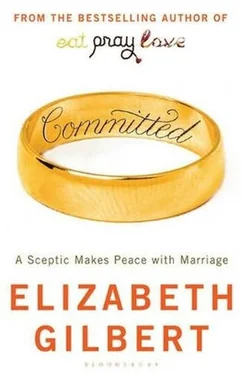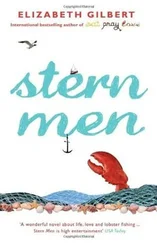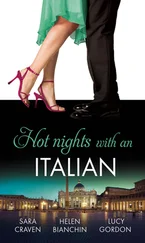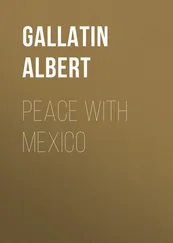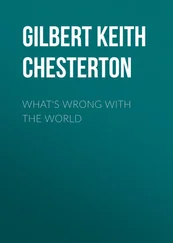The problem, simply put, is that we cannot choose everything simultaneously. So we live in danger of becoming paralyzed by indecision, terrified that every choice might be the wrong choice. (I have a friend who second-guesses herself so compulsively that her husband jokes her autobiography will someday be titled I Should’ve Had the Scampi.) Equally disquieting are the times when we do make a choice, only to later feel as though we have murdered some other aspect of our being by settling on one single concrete decision. By choosing Door Number Three, we fear we have killed off a different-but equally critical- piece of our soul that could only have been made manifest by walking through Door Number One or Door Number Two.
The philosopher Odo Marquard has noted a correlation in the German language between the word zwei, which means “two,” and the word zweifel, which means “doubt”-suggesting that two of anything brings the automatic possibility of uncertainty to our lives. Now imagine a life in which every day a person is presented with not two or even three but dozens of choices, and you can begin to grasp why the modern world has become, even with all its advantages, a neurosis-generating machine of the highest order. In a world of such abundant possibility, many of us simply go limp from indecision. Or we derail our life’s journey again and again, backing up to try the doors we neglected on the first round, desperate to get it right this time. Or we become compulsive comparers-always measuring our lives against some other person’s life, secretly wondering if we should have taken her path instead.
Compulsive comparing, of course, only leads to debilitating cases of what Nietzsche called Lebensneid, or “life envy”: the certainty that somebody else is much luckier than you, and that if only you had her body, her husband, her children, her job, everything would be easy and wonderful and happy. (A therapist friend of mine defines this problem simply as “the condition by which all of my single patients secretly long to be married, and all of my married patients secretly long to be single.”) With certainty so difficult to achieve, everyone’s decisions become an indictment of everyone else’s decisions, and because there is no universal model anymore for what makes “a good man” or “a good woman,” one must almost earn a personal merit badge in emotional orientation and navigation in order to find one’s way through life anymore.
All these choices and all this longing can create a weird kind of haunting in our lives-as though the ghosts of all our other, unchosen, possibilities linger forever in a shadow world around us, continuously asking, “Are you certain this is what you really wanted?” And nowhere does that question risk haunting us more than in our marriages, precisely because the emotional stakes of that most intensely personal choice have become so huge.
Believe me, modern Western marriage has much to recommend it over traditional Hmong marriage (starting with its kidnapping-free spirit), and I will say it again: I would not trade lives with those women. They will never know my range of freedom; they will never have my education; they will never have my health and prosperity; they will never be allowed to explore so many aspects of their own natures. But there is one critical gift that a traditional Hmong bride almost always receives on her wedding day which all too often eludes the modern Western bride, and that is the gift of certainty. When you have only one path set before you, you can generally feel confident that it was the correct path to have taken. And a bride whose expectations for happiness are kept necessarily low to begin with is more protected, perhaps, from the risk of devastating disappointments down the road.
To this day, I admit, I’m not entirely sure how to use this information. I cannot quite bring myself to make an official motto out of “Ask for less!” Nor can I imagine advising a young woman on the eve of her marriage to lower her expectations in life in order to be happy. Such thinking runs contrary to every modern teaching I’ve ever absorbed. Also, I’ve seen this tactic backfire. I had a friend from college who deliberately narrowed down her life’s options, as though to vaccinate herself against overly ambitious expectations. She skipped a career and ignored the lure of travel to instead move back home and marry her high school sweetheart. With unwavering confidence, she announced that she would become “only” a wife and mother. The simplicity of this arrangement felt utterly safe to her-certainly compared to the convulsions of indecision that so many of her more ambitious peers (myself included) were suffering. But when her husband left her twelve years later for a younger woman, my friend’s rage and sense of betrayal were as ferocious as anything I’ve ever seen. She virtually imploded with resentment-not so much against her husband, but against the universe, which she perceived to have broken a sacred contract with her. “I asked for so little!” she kept saying, as though her diminished demands alone should have protected her against any disappointments. But I think she was mistaken; she had actually asked for a lot. She had dared to ask for happiness, and she had dared to expect that happiness out of her marriage. You can’t possibly ask for more than that.
But maybe it would be useful for me to at least acknowledge to myself now, on the eve of my second marriage, that I, too, ask for an awful lot. Of course I do. It’s the emblem of our times. I have been allowed to expect great things in life. I have been permitted to expect far more out of the experience of love and living than most other women in history were ever permitted to ask. When it comes to questions of intimacy, I want many things from my man, and I want them all simultaneously. It reminds me of a story my sister once told me, about an Englishwoman who visited the United States in the winter of 1919 and who, scandalized, reported back home in a letter that there were people in this curious country of America who actually lived with the expectation that every part of their bodies should be warm at the same time! My afternoon spent discussing marriage with the Hmong made me wonder if I, in matters of the heart, had also become such a person-a woman who believed that my lover should magically be able to keep every part of my emotional being warm at the same time.
We Americans often say that marriage is “hard work.” I’m not sure the Hmong would understand this notion. Life is hard work, of course, and work is very hard work-I’m quite certain they would agree with those statements-but how does marriage become hard work? Here’s how: Marriage becomes hard work once you have poured the entirety of your life’s expectations for happiness into the hands of one mere person. Keeping that going is hard work. A recent survey of young American women found that what women are seeking these days in a husband-more than anything else-is a man who will “inspire” them, which is, by any measure, a tall order. As a point of comparison, young women of the same age, surveyed back in the 1920s, were more likely to choose a partner based on qualities such as “decency,” or “honesty,” or his ability to provide for a family. But that’s not enough anymore. Now we want to be inspired by our spouses! Daily! Step to it, honey!
But this is exactly what I myself have expected in the past from love (inspiration, soaring bliss) and this is what I was now preparing to expect all over again with Felipe-that we should somehow be answerable for every aspect of each other’s joy and happiness. That our very job description as spouses was to be each other’s everything.
So I had always assumed, anyhow.
And so I might have gone on blithely assuming, except that my encounter with the Hmong had knocked me off course in one critical regard: For the first time in my life, it occurred to me that perhaps I was asking too much of love. Or, at least, perhaps I was asking too much of marriage. Perhaps I was loading a far heavier cargo of expectation onto the creaky old boat of matrimony than that strange vessel had ever been built to accommodate in the first place.
Читать дальше
